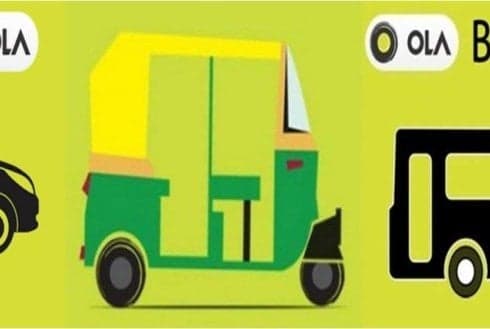Inc42 Daily Brief
Stay Ahead With Daily News & Analysis on India’s Tech & Startup Economy
Delhi High Court ban on Ola has been upheld, as a consequence of which diesel taxis will be barred from making point-to-point rides within the city. The ban was deposed by a single judge bench on July 29 directing the Delhi government to strictly enforce the ban order issued on January 1 on radio cab services which are not yet registered under the umbrella of radio taxi scheme and running on diesel.
Traffic police officers were quick to act and said that they would begin a “crackdown” on all the diesel taxis operating within the city limits. This move will definitely impact the other Cab hailing services in the city including TaxiForSure and Uber.
As a part of the measures all diesel cabs registered with RTO authorities as tourist vehicles will be impounded if found transiting within the city limits. Thankfully, vehicles moving to Gurgaon or Noida will be spared from the ban as it is outside Delhi city limits.
Special commissioner, Muktesh Chander told TOI that “A court challan was also issued to the drivers for disobeying norms mentioned in their permits. We have compiled with the order to ban diesel cabs which have no authority to run under app-based cab services in Delhi or any commercial services based in the city.”
The ban will directly affect more than 8000 diesel vehicles running under different cab hailing services and the authorities have warned that they will take severe actions under the Section 188 IPC if they do not stop the services.
Ola said in a statement that “We respect the division bench’s order on commercial diesel vehicles on all aggregator platforms in the state of Delhi, as well as on those plying independently. We are working closely with the authorities to help and support the thousands of driver entrepreneurs and lakhs of citizens in the state, who use the Ola app.”
High court squashed the Ola appeal saying that it was “misleading” as the court order not only required taxis to be Euro 2 compliant but they should also be fitted with a single fuel mode of CNG with effect from April 2001.
Ola had also stressed on the fact that they were different from other operators as they just bring the cab operators on a single platform and don’t actually own them. Ola also put forth the point that the cabs have been registered in the All India Tourist permit, thus they cannot be brought under the Radio cab license.
Editors Take
I have been using Ola, Uber and TFS from almost a year and they have almost always lived up to my expectation. I personally feel that cab hailing services are a crucial part of the intracity transport chain. The fixed prices add an extra layer of convenience to the customers and the best part is customers can complain against the drivers in case they are not satisfied with the services. Clamping down a direct ban on the cab services will adversely affect the driver’s life, as they will not be able to pay up their vehicle loan and their daily earnings will also be snatched.
Another incident during my recent visit to Delhi highlighted the other part of Taxi services. I casually sparked up a conversation with the driver and when asked about the impending ban on the cabs he was quick to revert and say that the cops allow them to ply if they pay the fees, also referred to as “hafta” in the Indian context. Surprisingly, I also found out that cab operators were using private vehicles (White number plate) for plying commuters within the city.
I also feel that there is a dire need for the government to amend rules as the intracity transport is undergoing a paradigm shift. Ola on the other hand should be sensitive to the court order and ensure the best in the interest of their drivers.
{{#name}}{{name}}{{/name}}{{^name}}-{{/name}}
{{#description}}{{description}}...{{/description}}{{^description}}-{{/description}}
Note: We at Inc42 take our ethics very seriously. More information about it can be found here.


